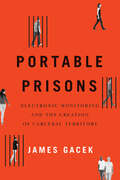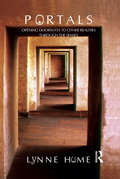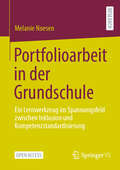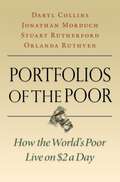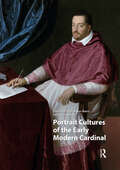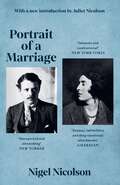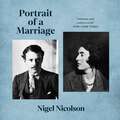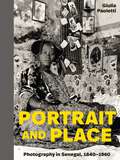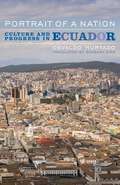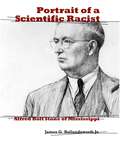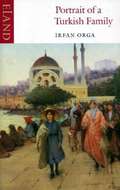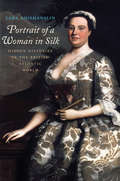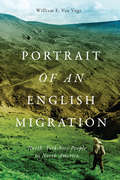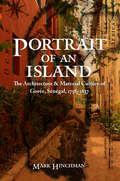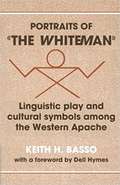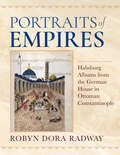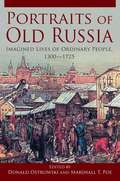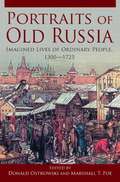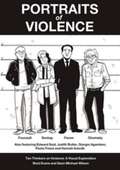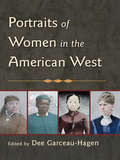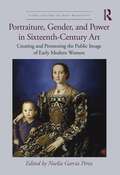- Table View
- List View
Portable Prisons: Electronic Monitoring and the Creation of Carceral Territory
by James GacekThe pervasiveness of surveillance, punishment, and control within and outside of spaces such as jails, prisons, and detention centres suggests that the carceral is becoming an increasingly prevalent presence in our lives, going beyond historical standards. The contemporary use of electronic monitoring extends carceral territory beyond prison walls, into people’s homes and everyday lives.Empirically and empathetically driven, Portable Prisons is a telling exploration of the electronic monitoring of offenders based on an ethnographic case study from Scotland. Electronic monitoring must be understood – in both intent and effect – as a carceral practice, an expression of the carceral state and its overreaching punitive capabilities. James Gacek demonstrates that various people experience punishment by means of restrictions around mobility, space, and time in ways that strongly overlap with the reported experiences of interviewed prisoners. Drawing attention to how the neoliberal state outsources the labour of punishment to private corporations and the punished themselves, he also rejects the idea that “soft” punishment is in any way related to the movement for decarceration.Offering an original contribution to our understanding of the geography of incarceration, Portable Prisons is a sophisticated account of electronic monitoring, underlining the growing significance of this field.
Portals: Opening Doorways to Other Realities Through the Senses
by Lynne HumeAs Alice in Wonderland discovered, cave entrances, tunnels, spirals and mirrors can transport people to strange worlds where anything is possible. Portals investigates how we move beyond the conscious and physical world using our senses, into other realities of the spiritual and the divine. Portals looks at the techniques used to alter consciousness practised by shamans, monks and other religious specialists. These include the use of drugs, as well as drumming, chanting and meditation. The book provides a new, anthropologically-grounded perspective on the wide-ranging questions about the realities of human consciousness and mystical, spiritual and religious experience.
Portfolioarbeit in der Grundschule: Ein Lernwerkzeug im Spannungsfeld zwischen Inklusion und Kompetenzstandardisierung
by Melanie NoesenDieses Open-AccesBuch thematisiert Portfolioarbeit in einer inklusionsorientierten Grundschule im Rahmen der luxemburgischen Bildungsreform und unter besonderer Berücksichtigung der komplexen Mehrsprachigkeitssituation des Großherzogtums. Das Portfolio wurde als wichtiges Instrument zur Implementierung eines Kompetenzmodells und einer neuen Leistungsbeurteilung angedacht und sollte nicht nur dem Lernen der Kinder, sondern auch der Unterrichtsentwicklung dienen. So geht die Studie der Frage nach, wie sich Lernen im Rahmen der Portfolioarbeit bei Kindern zu Beginn des Schriftspracherwerbs in einer inklusionsorientierten Grundschule gestaltet. Spezifischer fragt sie nach der Nutzung sowie der Deutung des Portfolios seitens der Kinder, der Lehrpersonen sowie der Eltern. Die Arbeit entwickelt und belegt die These, dass die Portfolioarbeit im Kontext der luxemburgischen Schulreform in der Praxis dem Antagonismus zwischen Inklusion und Kompetenzstandardisierung ausgesetzt ist. Weiter beleuchtet sie die Auswirkungen dieses systeminhärenten Widerspruchs auf den unterschiedlichen Ebenen. So beschreibt und analysiert sie die Umsetzung der Portfolioarbeit auf der Ebene des Lernens des Kindes, der Unterrichtsgestaltung, der Schule sowie der Bildungspolitik.
Portfolios of the Poor: How the World's Poor Live on $2 a Day
by Jonathan Morduch Daryl Collins Stuart Rutherford Orlanda RuthvenNearly forty percent of humanity lives on an average of two dollars a day or less. If you've never had to survive on an income so small, it is hard to imagine. How would you put food on the table, afford a home, and educate your children? How would you handle emergencies and old age? Every day, more than a billion people around the world must answer these questions. Portfolios of the Poor is the first book to systematically explain how the poor find solutions to their everyday financial problems. The authors conducted year-long interviews with impoverished villagers and slum dwellers in Bangladesh, India, and South Africa--records that track penny by penny how specific households manage their money. The stories of these families are often surprising and inspiring. Most poor households do not live hand to mouth, spending what they earn in a desperate bid to keep afloat. Instead, they employ financial tools, many linked to informal networks and family ties. They push money into savings for reserves, squeeze money out of creditors whenever possible, run sophisticated savings clubs, and use microfinancing wherever available. Their experiences reveal new methods to fight poverty and ways to envision the next generation of banks for the "bottom billion." Indispensable for those in development studies, economics, and microfinance, Portfolios of the Poor will appeal to anyone interested in knowing more about poverty and what can be done about it.
Portrait Cultures of the Early Modern Cardinal (Visual and Material Culture, 1300-1700)
by Piers Baker-Bates Irene BrookeThe visual legacy of early modern cardinals constitutes a vast and extremely rich body of artworks, many of superb quality, in a variety of media, often by well-known artists and skilled craftsmen. Yet cardinal portraits have primarily been analyzed within biographical studies of the represented individual, in relation to the artists who created them, or within the broader genre of portraiture. Portrait Cultures of the Early Modern Cardinal addresses questions surrounding the production, collection, and status of the cardinal portrait, covering diverse geographies and varied media. Examining the development of cardinals' imagery in terms of their multi-layered identities, this volume considers portraits of 'princes of the Church' as a specific cultural phenomenon reflecting cardinals' unique social and political position.
Portrait Of A Marriage: Vita Sackville-West and Harold Nicolson
by Vita Sackville-West Nigel NicolsonThe classic story of the relationship between Vita Sackville-West and Harold Nicolson, and a unique portrait of the Bloomsbury Group.'A brilliantly structured account of the dramas, infidelities and deep emotional attachments' GUARDIAN'An intimate and controversial account of his bisexual parents' open relationship' NEW YORK TIMES'One of the most absorbing stories, built around two very remarkable people, ever to stray from Gothic fiction into real life' TLSThe marriage was that between the two writers, Vita Sackville-West and Harold Nicolson and the portrait is drawn partly by Vita herself in an autobiography which she left behind at her death in 1962 and partly by her son, Nigel. It was one of the happiest and strangest marriages there has ever been. Both Vita and Harold were always in love with other people and each gave the other full liberty 'without enquiry or reproach', knowing that their love for each other would be unaffected and even strengthened by the crises which it survived. This account of their love story is now a modern classic.
Portrait Of A Marriage: Vita Sackville-West and Harold Nicolson
by Vita Sackville-West Nigel Nicolson MBEThe fascinating story of an unconventional, bisexual and powerfully loving relationship and a unique portrait of gender and feminism - with a new introduction from Juliet Nicolson.'A brilliantly structured account of the dramas, infidelities and deep emotional attachments' GUARDIAN'An intimate and controversial account of his bisexual parents' open relationship' NEW YORK TIMES'One of the most absorbing stories, built around two very remarkable people, ever to stray from Gothic fiction into real life' TLSThe marriage was that between the two writers, Vita Sackville-West and Harold Nicolson and the portrait is drawn partly by Vita herself in an autobiography which she left behind at her death in 1962 and partly by her son, Nigel. It was one of the happiest and strangest marriages there has ever been. Both Vita and Harold were always in love with other people and each gave the other full liberty 'without enquiry or reproach', knowing that their love for each other would be unaffected and even strengthened by the crises which it survived. This account of their love story is now a modern classic.
Portrait Of A Marriage: Vita Sackville-West and Harold Nicolson
by Vita Sackville-West Nigel Nicolson MBEThe fascinating story of an unconventional, bisexual and powerfully loving relationship and a unique portrait of gender and feminism - with a new introduction from Juliet Nicolson.'A brilliantly structured account of the dramas, infidelities and deep emotional attachments' GUARDIAN'An intimate and controversial account of his bisexual parents' open relationship' NEW YORK TIMES'One of the most absorbing stories, built around two very remarkable people, ever to stray from Gothic fiction into real life' TLSThe marriage was that between the two writers, Vita Sackville-West and Harold Nicolson and the portrait is drawn partly by Vita herself in an autobiography which she left behind at her death in 1962 and partly by her son, Nigel. It was one of the happiest and strangest marriages there has ever been. Both Vita and Harold were always in love with other people and each gave the other full liberty 'without enquiry or reproach', knowing that their love for each other would be unaffected and even strengthened by the crises which it survived. This account of their love story is now a modern classic.
Portrait Of A Marriage: Vita Sackville-West and Harold Nicolson
by Vita Sackville-West Nigel Nicolson MBEThe fascinating story of an unconventional, bisexual and powerfully loving relationship and a unique portrait of gender and feminism - with a new introduction from Juliet Nicolson.'A brilliantly structured account of the dramas, infidelities and deep emotional attachments' GUARDIAN'An intimate and controversial account of his bisexual parents' open relationship' NEW YORK TIMES'One of the most absorbing stories, built around two very remarkable people, ever to stray from Gothic fiction into real life' TLSThe marriage was that between the two writers, Vita Sackville-West and Harold Nicolson and the portrait is drawn partly by Vita herself in an autobiography which she left behind at her death in 1962 and partly by her son, Nigel. It was one of the happiest and strangest marriages there has ever been. Both Vita and Harold were always in love with other people and each gave the other full liberty 'without enquiry or reproach', knowing that their love for each other would be unaffected and even strengthened by the crises which it survived. This account of their love story is now a modern classic.
Portrait and Place: Photography in Senegal, 1840–1960
by Giulia PaolettiA richly illustrated history of photography in one of the epicenters of African modernityWhen the daguerreotype first arrived in sub-Saharan Africa in the early nineteenth century, local kingdoms still held power in Senegal and the French presence was limited to trading outposts along the coast. The pioneers of photography in Senegal worked within, across, and beyond the borders of colonial empire, expanding the medium&’s possibilities and contributing to a global visual language. Portrait and Place explores these unique encounters, providing an in-depth and nuanced look at the images made at the intersection of Black Atlantic, Islamic, and African cultures.Giulia Paoletti takes readers on a visual journey from the 1840s, when the oldest-surviving daguerreotype from West Africa was made, to the 1960s, when photography became the most popular medium as Senegal achieved its independence. She discusses some of Africa&’s most celebrated modernists, such as Mama Casset, and also offers insights into lesser-known photographers like Oumar Ka and once-anonymous figures such as Macky Kane. Paoletti examines both professional and amateur artists in genres ranging from portraiture to landscape and across media such as glass painting and lithography.Featuring a wealth of breathtaking images published here for the first time, Portrait and Place brings to life the important histories of photography on the African continent.
Portrait of a Burger as a Young Calf: The Story of One Man, Two Cows, and the Feeding of a Nation
by Peter LovenheimFour years ago, journalist Peter Lovenheim was standing in a long line at McDonald's to buy a Happy Meal for his little daughter, which would come with a much-desired Teenie Beanie Baby--either a black-and-white cow named "Daisy" or an adorable red bull named "Snort. " Finding it rather strange that young children were being offered cuddly toy cows one minute and eating the grilled remains of real ones the next, Lovenheim suddenly saw clearly the great disconnect between what we eat and our knowledge of where it comes from. Determined to understand the process by which living animals become food, Lovenheim did the only thing he could think of: He bought a calf--make that twin calves, number 7 and number 8--from the dairy farm where they were born and asked for permission to spend as much time as necessary hanging around and observing everything that happened in the lives of these farm animals. Portrait of a Burger as a Young Calf is the provocative true story of Peter Lovenheim's hands-on journey into the dairy and beef industries as he follows his calves from conception to possible consumption. In the process, he gets to know the good, hard-working people who raise our cattle and make milk products, beef, and veal available to consumers like you and me. He supplies us with a "fly on the wall" view of how these animals are used to put food on America's very abundant tables. Constantly vigilant about wanting to be an observer who never interferes, Lovenheim allows the reader to see every aspect of a cow's life, without passing judgment. Reading this book will forever change the way you think about food and the people and animals who provide it for us.
Portrait of a Nation: Culture and Progress in Ecuador
by Osvaldo HurtadoA case study of why Third World countries are still poor, the premise of this book is that while some progress has been made in transforming the political economy of Ecuador, certain behaviors, beliefs and attitudes have kept the country from developing in ways that otherwise would have been possible. As the author asserts, for almost five centuries the cultural habits of Ecuadorian citizens have constituted a stumbling block for individual economic success. Still, he concludes, people's cultural values are not immutable: inconvenient customs can be changed or influenced by the economic success of immigrants. This is the challenge that Ecuador faces in the twenty-first century.
Portrait of a Scientific Racist: Alfred Holt Stone of Mississippi
by James G. Jr.In the years after Reconstruction, racial tension soared, as many white southerners worried about how to deal with the millions of free African Americans among them -- an issue they termed the "negro problem." In an attempt to maintain the status quo, white supremacists resurrected old proslavery arguments and sought new justification in scientific theories purporting to "prove" people of African descent inherently inferior to whites. In Portrait of a Scientific Racist James G. Hollandsworth, Jr., reveals how the conjectures of one of the country's most prominent racial theorists, Alfred Holt Stone, helped justify a repressive racial order that relegated African Americans to the margins of southern society in the early 1900s.In this revealing biography, Hollandsworth examines the thoughts and motives of this renowned man, focusing primarily on Stone's most intensive period of theorizing, from 1900 to 1910. A committed and vocal white supremacist, Stone believed black southern workers were inherently lazy, a trait he attributed to their African genes and heritage. He asserted that slavery helped improve the black race but that opportunities still existed during Reconstruction to mold the freedmen into efficient workers. Stone's central -- yet unspoken -- goal was to devise a way to maintain an obedient, productive labor force willing to work for low wages. Writing from both Washington, D.C., and his cotton plantation in the Mississippi Delta, Stone published numerous essays and collected more than 3000 articles and pamphlets on the "American Race Problem" -- including those written by bitter racists and enthusiastic "race boosters."Though Stone lacked the credentials typically associated with scholarly experts of the time, he became an authority on the subject of black Americans, in part because of his close friendship with fellow scientific racist and statistician Walter F. Willcox. An early member of the American Economic Association and other academic groups, Stone went on to serve as head scholar of a division for race studies within the Carnegie Foundation. Interestingly, Stone recruited W. E. B. Du Bois and Booker T. Washington to collaborate with him on a major study for the Foundation, continuing his tendency to incorporate all perspectives into his study of race.Hollandsworth uses Stone's extensive correspondence with Willcox, Du Bois, and Washington, as well as his personal writings -- both published and unpublished -- to reveal the secrets of this misguided, yet fascinating, figure.
Portrait of a Turkish Family
by Irfan OrgaThis book describes in detail the disintegration of a wealthy Ottoman family, both financially and emotionally.
Portrait of a Woman in Silk: Hidden Histories of the British Atlantic World
by Zara AnishanslinThrough the story of a portrait of a woman in a silk dress, historian Zara Anishanslin embarks on a fascinating journey, exploring and refining debates about the cultural history of the eighteenth-century British Atlantic world. While most scholarship on commodities focuses either on labor and production or on consumption and use, Anishanslin unifies both, examining the worlds of four identifiable people who produced, wore, and represented this object: a London weaver, one of early modern Britain's few women silk designers, a Philadelphia merchant's wife, and a New England painter. Blending macro and micro history with nuanced gender analysis, Anishanslin shows how making, buying, and using goods in the British Atlantic created an object-based community that tied its inhabitants together, while also allowing for different views of the Empire. Investigating a range of subjects including self-fashioning, identity, natural history, politics, and trade, Anishanslin makes major contributions both to the study of material culture and to our ongoing conversation about how to write history.
Portrait of an English Migration: North Yorkshire People in North America
by William E. Van VugtPortrait of an English Migration recounts the history of those who left North Yorkshire for North America between the eighteenth century and the early twentieth century. Focusing on individual stories of migrants and their families, this book provides many personal glimpses of the migration experience of those who left England's largest county to build new lives in the United States and Canada.Exploring the local history, geography, and cultures of Yorkshire and the key places of settlement in North America, William Van Vugt deepens our understanding of the historic migration process: how local conditions and access to information influenced migration decisions, the role of local networks in migration patterns, and the significance of family connections, religious identities, and land ownership to the migrants themselves. He considers the extent to which English migrants shaped regional culture and contributed to economic development, addressing ongoing questions about identity and what it meant to be English in North America.Full of first-person accounts and stories from migrants themselves, Portrait of an English Migration is both a sweeping history of two centuries of migration and an intimate look at the lives of generations of Yorkshire people who crossed the ocean to make a new home.
Portrait of an Explorer: Hiram Bingham, Discoverer of Machu Picchu
by Alfred M. BinghamDetails about Hiram Bingham's exploration in Peru that led him to Machu Picchu.
Portrait of an Island: The Architecture and Material Culture of Gorée, Sénégal, 1758–1837 (Early Modern Cultural Studies)
by Mark HinchmanThe once famous trading center of Gorée, Sénégal today lies in the busy harbor of the modern city of Dakar. From its beginnings as a modest outpost, Gorée became one of the intersections which linked African trading routes to the European Atlantic trade. Then, as now, people of all nationalities poured into the island; Dutch, English, French, and Portuguese came to trade with the Mande, Moor, Tukor, and Wolf tribes. Trading parties brought gold, horses, firewood, mirrors, books, and more. They built houses of various forms, using American lumber, French roof tiles, freshly‑cut straw, and pulverized seashells, and furnished them in as cosmopolitan a fashion as the city itself. Mark Hinchman's Portrait of an Island: The Architecture and Material Culture of Gorée, Sénégal, 1758‑1837 considers the houses, portraits, and furnishings of the island's early modern inhabitants. Multiple features of eighteenth‑century Gorée‑‑its demographic diversity, the prominence of women leaders, the phenomenon of identities in flux, and the importance of commerce, fashion, and international trade‑‑argue for its place in the construction of an early global modernity. In an examination of the built and natural landscape, Portrait of an Island deciphers the material culture involved in the ever‑changing relationships amongst male, female, rich, poor, and slave.
Portraits of "the Whiteman"
by Keith H. Bassoâ The Whiteman' is one of the most powerful and pervasive symbols in contemporary American Indian cultures. Portraits of â the Whiteman': linguistic play and cultural symbols among the Western Apache investigates a complex form of joking in which Apaches stage carefully crafted imitations of Anglo-Americans and, by means of these characterizations, give audible voice and visible substance to their conceptions of this most pressing of social â problems'. Keith Basso's essay, based on linguistic and ethnographic materials collected in Cibecue, a Western Apache community, provides interpretations of selected joking encounters to demonstrate how Apaches go about making sense of the behaviour of Anglo-Americans. The portraits developed in these texts are understood as models of Whitemen and for dealing with Whitemen created by Apaches for Apaches. More obliquely, they also express Apaches' conception of themselves, for â the Whiteman' has long been a symbol of what â the Apache' is not. This study draws on current theory in symbolic anthropology, sociolinguistics, and the dramaturgical model of human communication developed by Erving Goffman. Although the assumptions and premises that shape these areas of inquiry are held by some to be quite disparate, this analysis shows them to be fully compatible and mutually complementary. In order to make explicit the meanings of joking texts, Basso examines in detail the abstract principles, both linguistic and nonlinguistic, for constructing and interpreting joking imitations in the context of face-to-face encounters. An exercise in cultural interpretation, this essay is also a study of ethnographic theory, the anthropology of play, American Indian humor, and the function of ethic boundaries in the everyday life of a modern Western Apache community.
Portraits of Empires: Habsburg Albums from the German House in Ottoman Constantinople (Ottomanica: Voices, Sources, Perspectives)
by Robyn Dora RadwayIn the late 16th century, hundreds of travelers made their way to the Habsburg ambassador's residence, known as the German House, in Constantinople. In this centrally located inn, subjects of the emperor found food, wine, shelter, and good company—and left an incredible collection of albums filled with images, messages, decorated papers, and more.Portraits of Empires offers a complete account of this early form of social media, which had a profound impact on later European iconography. Revealing a vibrant transimperial culture as viewed from all walks of life—Muslim and Christian, noble and servant, scholar and stable boy—the pocket-sized albums containing these curiosities have never been fully connected to the abundant archival records on the German House and its residents. Robyn Dora Radway not only introduces these objects, the people who filled their pages, and the house at the center of their creation, but she also presents several arguments regarding chronologies of exchange, workshop practices, the curation of social networks and visual collections based on status, and the purposes of these highly individualized material portraits.Featuring 162 fascinating color images, Portraits of Empires reconstructs the world of Habsburg subjects living in Ottoman Constantinople using a rich and distinctive set of objects to raise questions about imperial belonging and the artistic practices used to articulate it.
Portraits of Old Russia: Imagined Lives of Ordinary People, 1300-1745
by Marshall T. Poe Donald OstrowskiThis book introduces readers to a little-known place and time in world history – early modern Russia, from its beginnings as Muscovy, in the fourteenth century, through the reign of Peter I (1689-1725) – by portraying the lives of representative individuals from the major levels of the society of that era. The portraits, written by professional historians, are imaginative reconstructions or composites of individual lives, rather than biographies. The portraits are arranged into socio-political categories, and include members of ruling families, government servitors, clerks, military personnel, church prelates, monks, provincial landowners, townspeople and artisans, Siberian explorers and traders, free peasants, serfs, slaves and holy fools. Using these portraits, the book brings old Russian society to life in an interesting way.
Portraits of Old Russia: Imagined Lives of Ordinary People, 1300-1745
by Marshall T. Poe Donald OstrowskiThis book introduces readers to a little-known place and time in world history – early modern Russia, from its beginnings as Muscovy, in the fourteenth century, through the reign of Peter I (1689-1725) – by portraying the lives of representative individuals from the major levels of the society of that era. The portraits, written by professional historians, are imaginative reconstructions or composites of individual lives, rather than biographies. The portraits are arranged into socio-political categories, and include members of ruling families, government servitors, clerks, military personnel, church prelates, monks, provincial landowners, townspeople and artisans, Siberian explorers and traders, free peasants, serfs, slaves and holy fools. Using these portraits, the book brings old Russian society to life in an interesting way.
Portraits of Violence: An Illustrated History of Radical Critique
by Robert Brown Sean Michael Wilson Carl Thompson Brad Evans Mike Medaglia Chris MackenzieBringing together established academics and award-winning comic book writers and illustrators, Portraits of Violence illustrates the most compelling ideas and episodes in the critique of violence. Hannah Arendt, Franz Fanon, Jacques Derrida, Edward Said, Paolo Freire, Michel Foucault, Susan Sontag, Noam Chomsky, Judith Butler, and Giorgio Agamben each have ten pages to tell their story in this innovative graphic title.
Portraits of Women in the American West
by Dee Garceau-HagenMen are usually the heroes of Western stories, but women also played a crucial role in developing the American frontier, and their stories have rarely been told.This anthology of biographical essays on women promises new insight into gender in the 19C American West. The women featured include Asian Americans, African-Americans and Native American women, as well as their white counterparts. The original essays offer observations about gender and sexual violence, the subordinate status of women of color, their perseverance and influence in changing that status, a look at the gendered religious legacy that shaped Western Catholicism, and women in the urban and rural, industrial and agricultural West.
Portraiture, Gender, and Power in Sixteenth-Century Art: Creating and Promoting the Public Image of Early Modern Women (ISSN)
by Noelia García PérezThis exciting and wide-ranging volume examines the construction and dissemination of the image of female power during the Renaissance.Chapters examine the creation, promotion, and display of the image of women in power, and how the artistic and cultural patronage they developed helped them craft a self-image that greatly contributed to strengthening their power, consolidating their political legitimacy, and promoting their authority. Contributors cover diverse models of sixteenth-century female power: from ruling queens, regents, and governors, to consorts of sovereigns and noblewomen outside the court. The women selected were key political figures and patrons of art in England, France, Castile, the Low Countries, the Holy Roman Empire, and Italian city states. The volume engages with crucial and controversial debates regarding the nature and use of portraiture as well as the changing patterns of how portraits were displayed, building a picture of the principal iconographic solutions and representational strategies that artists used.The book will be of interest to scholars working in art history, gender studies, women’s studies, and Renaissance studies.
